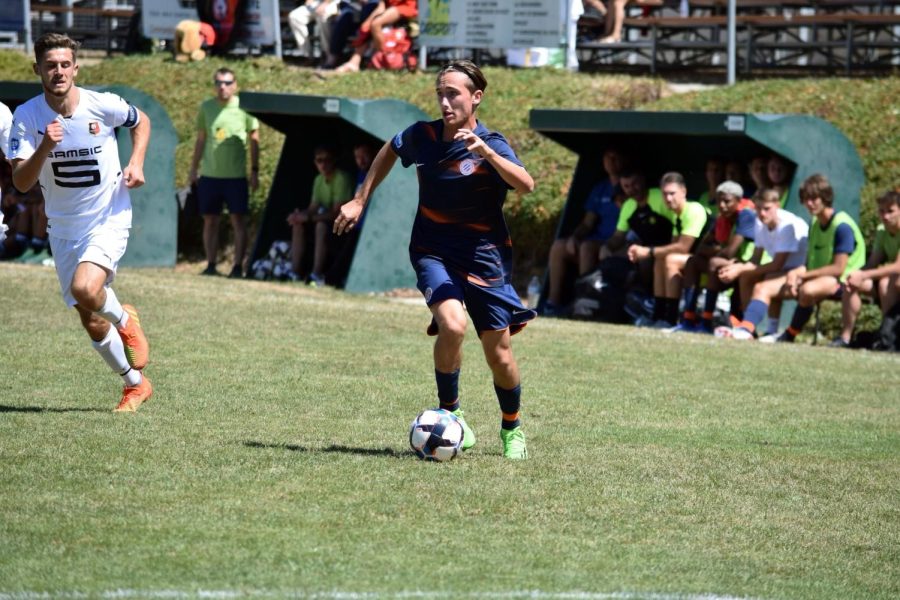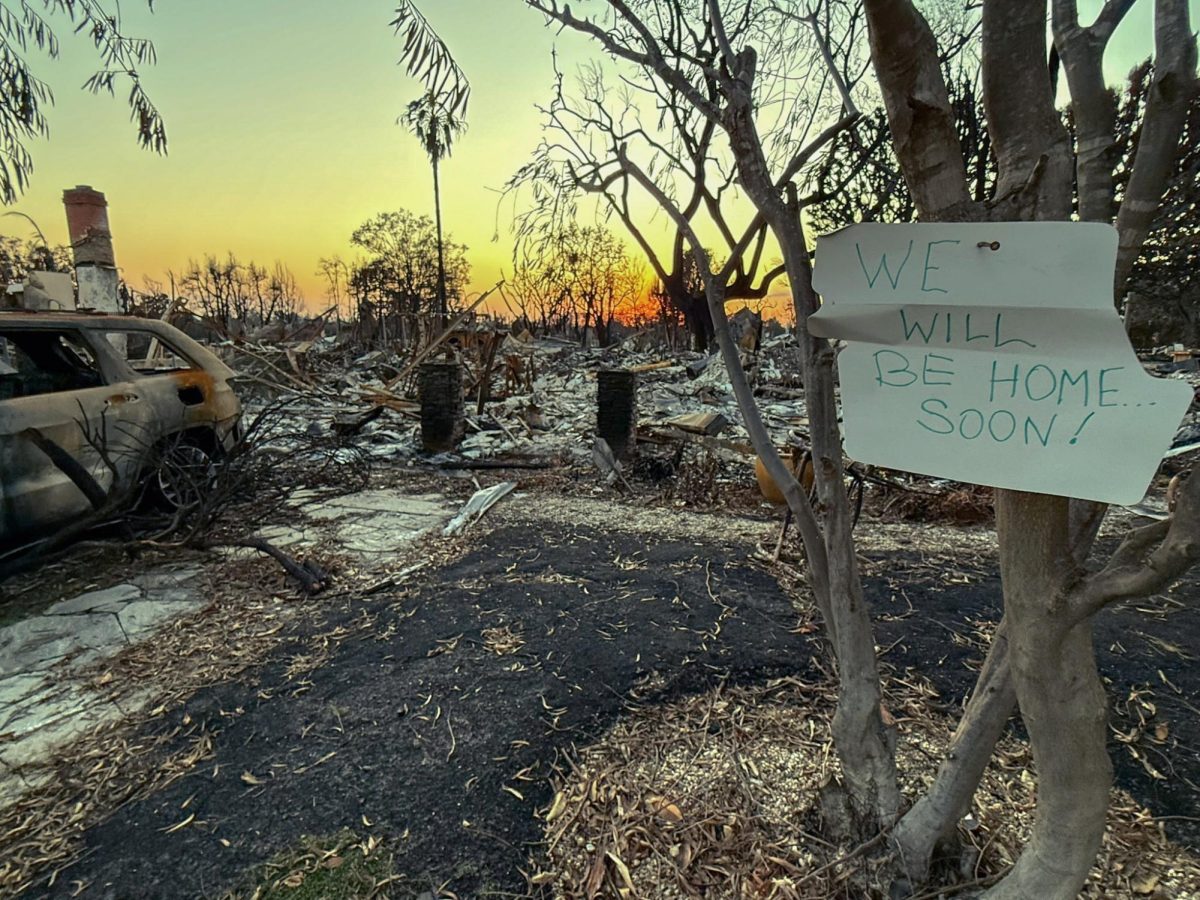Cross Borders and Breaking Boundaries: How Cesar Aubour Pursues his Footballing Dreams
March 3, 2023
While some student-athletes commit to universities to try and achieve their dreams of playing sports professionally, other students take different paths to become professional athletes. Senior Cesar Aubour is one of these students taking an unconventional route, spending the last two years training in France in pursuit of a professional football (soccer) career.
While the pandemic was an obstacle for many athletes with both club and school sports being suspended, Aubour embraced it as an opportunity. With fewer commitments and Pali adopting a shortened schedule in the 2020-21 school year, Aubour had significantly more time to train, and said that he “took advantage of that.”
Starting at 5:45 a.m., Aubour would fit in one training session in the morning, attend his required Zooms for school, finish his homework and then either attend an additional training session or go to the gym at night. Through his recognized work ethic and ability, he eventually got the opportunity to play with SPI Elite, a development team of older college-level and semi-pro players. After becoming a part of the group, Aubour said that his confidence grew exponentially, adding that he saw “improvements coming far faster than before.”
In the spring of 2021, at 16, Aubour continued his soccer journey abroad in France, where he tried out for various academies, including Racing Football Club (RFC) Toulon. Despite not being a professional club, its Under-17 academy team played in the Liga Francesca with Ligue 1 (the top football division in France) clubs.
“[This was] a great opportunity, not only for the experience of playing in France, but for the exposure as well,” said Aubour, 17, who continued his education at Pali through Virtual Academy classes.
For the first three months, Aubour lived in a dorm with his teammates in Toulon, a transition that paralleled the move to college.
“It was the first time I had real home responsibilities, and balancing my new responsibilities along with school and football was difficult, but living in the dorm was definitely good for me,” Aubour said.
While the transition to living on his own was difficult, Aubour also had to catch up to his new teammates who had been focusing solely on football for a near decade.
“The mentality around football is very different,” Aubour explained. “[The coaches] are very demanding and have high expectations of their players.”
Because Aubour was not afforded the excuse of having subpar training, he explained that he had to perform at an equal level to those around him.
Despite this gap in experience, Aubour was the academy’s standout performer, leading the team with 2,220 minutes and five goals. While his stellar performances were not enough to lift the club from the bottom of the table, Aubour had put himself on the map, attracting interest from various Ligue 1 teams.
After having their eye on Aubour’s performances with RFC Toulon, Montpellier, a prestigious Ligue 1 club, invited Aubour to trial with the Under-19 team. After a three-day trial, Aubour was offered a spot on the team.
“When I got accepted I was super happy because that was my goal when I first moved to France, so it was amazing to take another step towards my dream of playing professionally,” Aubour said.
Joining Montpellier, Aubour had to quickly adapt once again.
“It’s a Ligue 1 professional club, so it is a much higher level compared to Toulon,” Aubour said. “In Toulon, I was only training four times a week, here we train seven to eight times a week.”
Aubour explains that it feels “as if you are basically in professional conditions.”
Throughout this process, Aubour dealt with any potential stress by maintaining a positive mindset.
“I definitely had personal goals like moving to a professional academy, but I knew that no matter what, this was going to be a good experience for my development, regardless of the outcome,” Aubour said. “It was a sacrifice and risk I was willing to take if it would be another step towards my dream, and I took that risk.”












